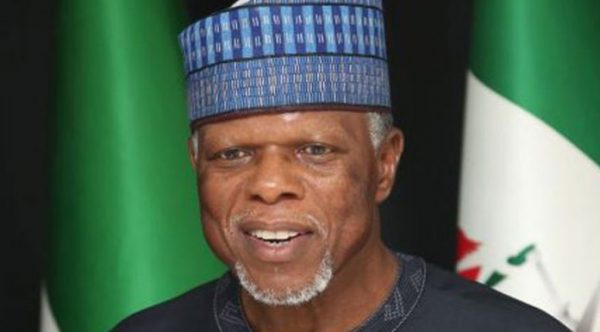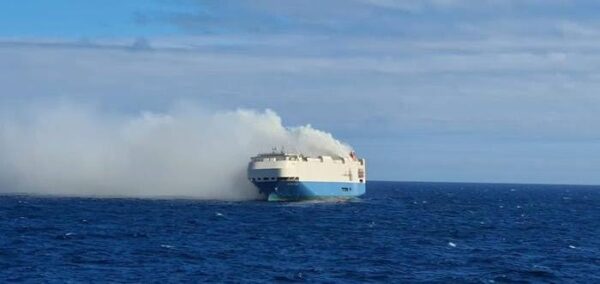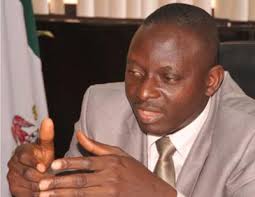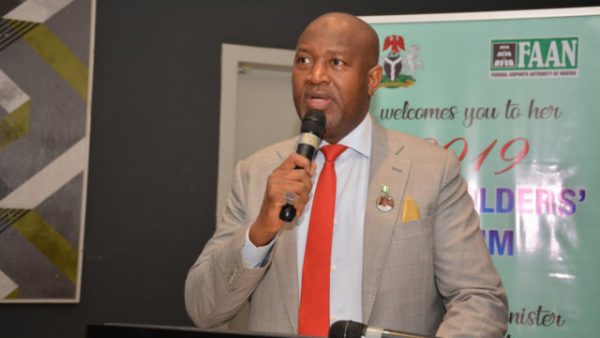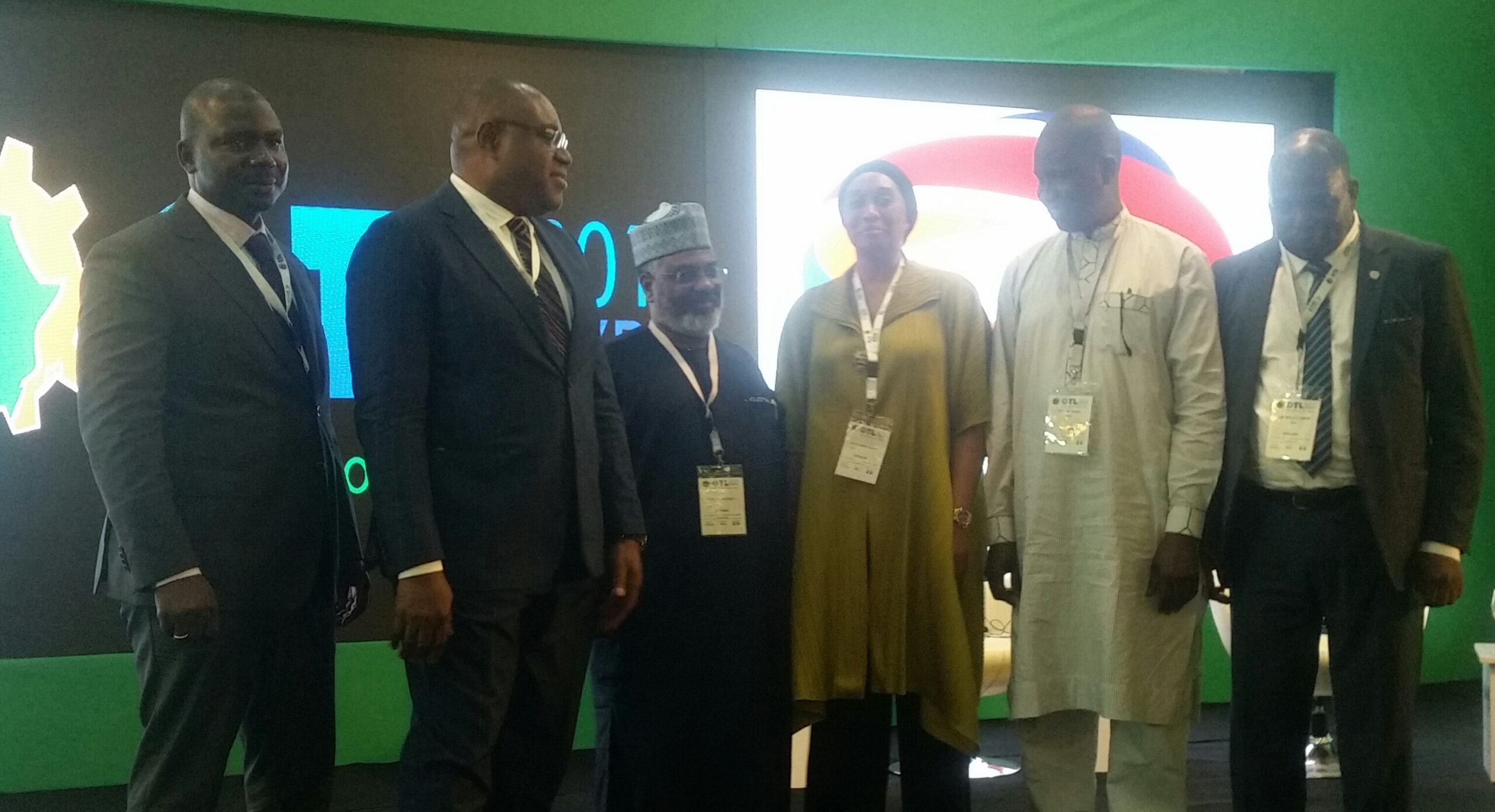Apapa Access Mayhem: How NPA Fuels Port Access Crisis – NARTO
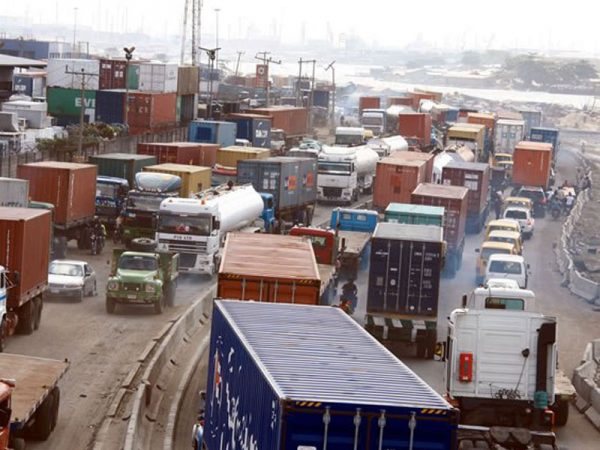
· NIWA reveals strategy to get 1000 trucks off Lagos ports
· Anticipates new legislation, funds to guarantee transformation
By Kenneth Jukpor
Despite its numerous efforts to rid the Lagos port access roads of the perennial gridlock, the Nigerian Ports Authority (NPA) has been indicted for the mainstay of the menace.
According to the National Association of Road Transport Owners (NARTO), NPA disrupted the manual truck call-up system with multiplicity of unverified truck parks approved as designated locations to obtain call-ups that enable trucks access the ports.
The trucking group stressed that the manual truck call-up system was only successful for the maiden three weeks of its implementation when only thirty-three designated truck parks which were identified by truckers were utilized.
The group lamented that either complacency or corruption led NPA to register over two-hundred (200) fake truck parks where call-ups could be generated; a decision which has seen trucks troop back to the ports without call-up and fueled the extortion by security operatives on the port access roads.
Speaking with MMS Plus on this issue last week, the Chairman, Dry Cargo Section of NARTO, Alhaji Inuwa Mohammed explained; “Initially the manual truck call-up system was successful because the truckers identified the truck parks or garages where the call-up could be generated. We came up with thirty-three (33) truck parks that we painstakingly identified, and informed our members of these parks so they could go there to get call-up. The exercise was very successful and the roads were free. However, when we decided to go further to identify more parks to make the system function better we got to know that NPA had already registered almost two hundred parks”
The trucking boss lamented that the more worrisome problem was the fact that almost 80% of the new parks NPA registered were ghost parks as the addresses had no parks let alone truck parks.
“Some influential people who are close to the Authority have been registered as designated parks for call-ups. These people sit very close to their control rooms around the ports and truckers meet them to get call-ups at the rate of N20,000 to N30,000” he revealed.
Alhaji Mohammed lamented that this illicit act has made it more difficult for the authentic truck parks to get the call-up and limited their patronage by truckers.
“That was how they scuttled the manual truck call-up arrangement. For instance, there is a designated truck park to obtain call-up at Warehouse road in Apapa, we know it is fake because there is no truck park there. Another one uses an address in Osborne in Ikoyi, it is also fake. Those truckers who complied to the process initially have been forced to come out and utilize the corrupt procedure” he added.
This development has heightened the movement of trucks along the port access roads without call-ups and resulted to an opening for gross extortion by security operatives regulating the flow of trucks on the port access roads.
Recall the MMS Plus lead story for the penultimate week, titled; “Apapa Extortion: Navy Finds Over N100 Million In Officer’s Account”,which revealed how the leadership of the Nigerian Navy was stunned after allegedly finding over a hundred million Naira in the bank account of an officer (name and rank withheld) who amassed the colossal sum from bribes collected at Apapa port environs as a security personnel responsible for the truck call-up management. The officer was said to have been caught allowing irregular movement of trucks on the Apapa bridge after receiving bribes.
Recently, the Association of Nigerian Licensed Customs Agents (ANLCA) accused the Nigerian Navy of complicity in the traffic situation in and around the Lagos ports thereby adding to the cost taking out cargo from the ports and returning of empty containers back to the ports.
The association accused the Nigerian Navy officers who head the taskforce teams on traffic decongestion of extorting as much as N150,000 from the truckers and later reducing the amount to N80,000. He also revealed that the association wrote to the Commander of the NNS Beecroft requesting for a meeting between the association and the Nigerian Navy.
Port stakeholders have continuously lamented that the corruption at the ports was the reason all efforts to solve the Apapa port access road crisis have been futile over the years.
The manual truck call-up system was accepted widely by truckers and the stakeholders in the port sector when it was introduced by the Nigerian Navy and NPA and all trucking groups put in efforts to make it succeed however, it has become an avenue for multiple shades of corruption.
Reacting to this, an Assistant General Manager at the Corporate and Strategic Communications Division of NPA, Mr. Nasiru Ibrahim said that this was a mere allegation.
According to Nasiru, the Authority had been in the forefront of the deliberations to eliminate the traffic gridlock at the ports and it couldn’t be so insensitive to allow unregulated registration of truck parks for generation of call-ups.
He revealed that the Authority had a strategic session with port stakeholders including NARTO and other trucking groups to address the gridlock on Friday, last week.
“NPA is currently holding stakeholders’ meeting on this traffic problem on Lagos port access roads. The ongoing session is chaired by a Senator and the Honorable Commissioner, Lagos Ministry of Works and Infrastructure, Engr. Ade Olayinka Akinsanya is there” Nasiru said.
In a related development, the National Inland Waterways Authority (NIWA) has revealed a strategy to dissipate the traffic gridlock at Lagos ports by getting up to 1000 trucks off the troubled port access roads.
The Managing Director of NIWA, Senator Mamora Olorunnimbe revealed this while speaking with MMS Plus during an exclusive chat last week, stating that the inland waterways had potentials to utilize barges that can carry containers that would have required over 1000 trucks.
“We have no business keeping trucks on the roads. Aside the dilapidated state caused by wear and tear and the consequence which is fatal accidents; a single barge can carry bulk cargo goods that 30 trucks can’t carry. There are 1500 tonnes barges and ten of such barges with one push tugboat can carry loads that 1000 trucks would carry” he said.
He stressed that the transportation of items like cement and other solid minerals shouldn’t be on the roads but the inland waterways.
The NIWA boss stated that the waterways provided cheaper means of cargo evacuation, noting that the Authority was concluding a Public-Private Partnership (PPP) arrangement with an indigenous company for the utilization of waterways for cargo evacuation.
Senator Mamora expressed confidence that the Memorandum of Understanding (MoU) to be signed by both parties would see the operations extend to the West African coast and place Nigeria as a hub for transshipment of cargoes in the sub-region.
The NIWA Managing Director also stated that the new NIWA legislation awaiting Presidential assent would be a powerful tool to drive the Authority to new heights, noting that the Authority was earnestly anticipating the signing of the bill that would improve its operational efficiency.
Highlighting key areas that the Authority the bill would improve, he noted that the aspect of the administrative efficiency would improve. “Unlike the Nigerian Maritime Administration and Safety Agency (NIMASA) and NPA, where they have Executive Directors, NIWA doesn’t have such. You only have the Managing Director who could easily be overburdened in terms of administration. You can simplify the system by creating Executive Director positions to handle certain issues and that would lead to improved operational efficiency”
“There is also the area of funding. The bill provides for certain funds that would come from various sources. Funding is one of the major issues confronting NIWA. NIWA has the potentials to fund itself but you make money by spending money. Money must be available to spend to put things in the right place to generate more money. We are looking at patrol vessels, adequate personnel, vehicles for logistics and revenue drive. That bill, when passed into law would improve these areas” he added.



